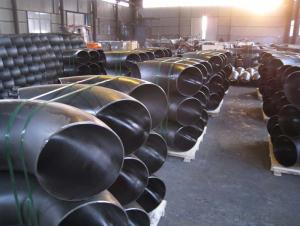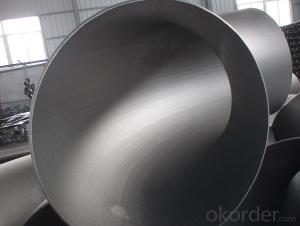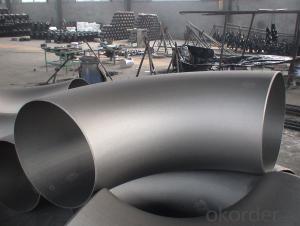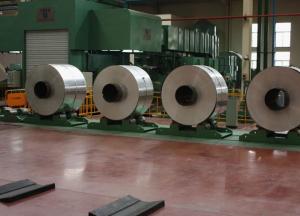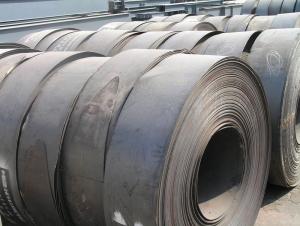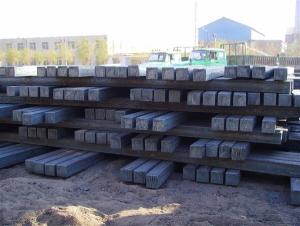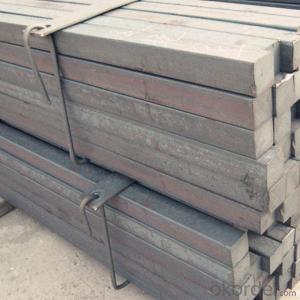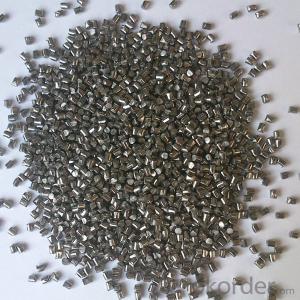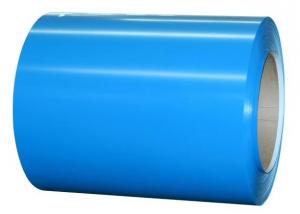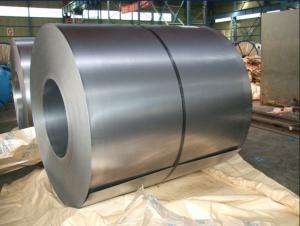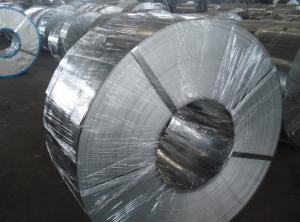Carbon steel pipe fittings FLANGE 1/2''-42''
- Loading Port:
- China Main Port
- Payment Terms:
- TT OR LC
- Min Order Qty:
- -
- Supply Capability:
- -
OKorder Service Pledge
OKorder Financial Service
You Might Also Like
Pipe fitting is the occupation of installing or repairing piping or tubing systems that convey liquid, gas, and occasionally solid materials. This work involves selecting and preparing pipe or tubing, joining it together by various means, and the location and repair of leaks.
Pipe fitting work is done in many different settings: HVAC, manufacturing, hydraulics, refineries, nuclear-poweredSupercarriers and Fast Attack Submarinescomputer chip fab plants, power plant construction and other steam systems. Pipe fitters (sometimes called simply "fitters") are represented in the USA and Canada by the United Association of Journeymen and Apprentices of the Plumbing and Pipe Fitting Industry of the United States and Canada.
Fitters work with a variety of pipe and tubing materials including several types of steel, copper, iron, aluminium, and plastic. Pipe fitting is not plumbing; the two are related but separate trades. Pipe fitters who specialize in fire prevention are called Sprinklerfitters, another related, but separate trade.
Materials, techniques, and usages vary from country to country as different nations have different standards to install pipe.
Elbow are an English alternative rock band consisting of Guy Garvey (vocals, guitar), Richard Jupp (drums, percussion), Craig Potter (keyboards, piano), Mark Potter (guitar, backing vocals), and Pete Turner (bass guitar, backing vocals). They have played together since 1990, adopting the Elbow band name in 1997, and have released six studio albums: Asleep in the Back (2001), Cast of Thousands (2003), Leaders of the Free World (2005), The Seldom Seen Kid (2008), Build a Rocket Boys! (2011), and The Take Off and Landing of Everything (2014). All of their studio albums, as well as B-sides compilation Dead in the Boot (2012), have placed in the top 15 of the British album chart and seven of their singles have placed in the top 40 of the British singles chart.
In 2008 Elbow won the Mercury Music Prize for their album The Seldom Seen Kid, and in 2009 they won the Brit Award for Best British Group In 2012 they released "First Steps", the BBC theme for the 2012 London Olympics
Specifications
Standard: ASTM A234 WPB, JIS, DIN, EN, GOST
Use for Oil, Gas, Subwatering act.
45/90/180 degree, LR/SR Elbow
ASTM A234 WPB ELBOW :
| ||||||||
| we are manufacturer for carbon steel pipe and fittings,like 45deg,90deg,180deg,L/R OR S/R,bend , | ||||||||
| equal or reducing tee, CON reducer, ECC reducer, pipe cap,flange. | ||||||||
| CON AND ECC REDUCER: CARBON STEEL,STAINLESS,STELL,ALLOY STEEL | ||||||||
| NOMINAL DIAMETER | BIG OD1 | SMALL OD2 | HEIGHT(MM) | |||||
| MM | SERIES A | SERIES B | SERIES A | SERIES B | 51-711 | |||
| 25*15--1500*1400 | 33.7-1524 | 32-1520 | 21.3-1420 | 18-1420 | ||||
| MATERIAL: A234WPB,A283,A105,A53,A106,API5L | ||||||||
| STANDARD: ASTM/ANSI,DIN,ISO,GB,JIS,BS ,GOST | ||||||||
| OTHERS: | ||||||||
| 1. Special design available according to requirement | ||||||||
| 2. All the production process are made under the ISO 9001:2000 strictly. | ||||||||
- Q:How is steel rebar welded for reinforcement in concrete structures?
- Steel rebar is welded for reinforcement in concrete structures using a process called electric arc welding. This involves creating an electric arc between the rebar and a welding electrode, which generates intense heat to melt the metal. The molten metal is then allowed to cool and solidify, forming a strong bond between the rebar and other steel components. This welding technique ensures the rebar stays firmly in place, enhancing the structural integrity and durability of the concrete construction.
- Q:What are the different types of steel products used in the oil and gas industry?
- There are several types of steel products used in the oil and gas industry, including pipes, tubing, casings, and fittings. These products are commonly made from carbon steel, alloy steel, or stainless steel, depending on the specific application and requirements. Carbon steel is often used for general-purpose applications, while alloy steel is preferred for more demanding conditions such as high-pressure or high-temperature environments. Stainless steel is chosen for its corrosion resistance in aggressive or corrosive environments.
- Q:What are the common uses of steel angles?
- Steel angles are commonly used in construction and engineering projects for various purposes. They are often used as structural supports and reinforcements in buildings and bridges. Steel angles are also utilized in the manufacturing of machinery, equipment, and vehicles. Additionally, they are commonly employed in the fabrication of frames, shelves, and brackets.
- Q:How are steel profiles used in the fabrication of conveyor systems?
- Steel profiles are commonly used in the fabrication of conveyor systems for various purposes. They serve as the structural framework for the system, providing stability and support. Steel profiles are often used to create the main beams, brackets, and other components that form the conveyor's frame. Additionally, they are utilized to construct the rollers and guides that facilitate the movement of the conveyor belt. Overall, steel profiles play a crucial role in ensuring the durability and functionality of conveyor systems.
- Q:How does steel compare to other materials like aluminum or wood?
- Steel is a highly durable and strong material that offers significant advantages compared to materials like aluminum or wood. Its superior strength allows for the construction of larger and sturdier structures, making it ideal for applications where structural integrity is crucial, such as in high-rise buildings and bridges. Additionally, steel's resistance to corrosion and fire makes it a safer and more long-lasting option. Compared to aluminum, steel is generally less expensive and has a higher weight-bearing capacity. While wood has its own unique aesthetic appeal and is renewable, steel surpasses it in terms of strength, durability, and resistance to environmental factors.
- Q:How are steel products used in the construction of public transportation systems?
- Steel products are extensively used in the construction of public transportation systems due to their strength, durability, and versatility. Steel is commonly used in the fabrication of railway tracks, bridges, tunnels, and station structures. It provides the necessary structural support, ensuring the safety and reliability of the transportation system. Additionally, steel is used in the manufacturing of various components such as train cars, bus frames, and tramlines, contributing to their longevity and resistance against wear and tear. Overall, steel plays a crucial role in the construction of public transportation systems, enhancing their efficiency, sustainability, and overall performance.
- Q:How is steel sheet metal formed?
- Steel sheet metal is formed through a process called cold rolling, where a steel coil is passed through a series of rollers to gradually reduce its thickness and shape it into a sheet. This process can also involve other techniques such as annealing, cutting, bending, and welding to achieve the desired final shape and dimensions.
- Q:What are the different types of steel forgings and their applications in the oil and gas industry?
- There are several types of steel forgings used in the oil and gas industry. Some common types include carbon steel forgings, stainless steel forgings, and alloy steel forgings. Carbon steel forgings are widely used due to their high strength and durability. They are commonly used in various applications such as valves, fittings, flanges, and pipelines. Stainless steel forgings are preferred for their corrosion resistance properties. They are commonly used in equipment and components that come in contact with corrosive substances, such as pumps, valves, and heat exchangers. Alloy steel forgings are known for their enhanced mechanical properties, including high strength, toughness, and resistance to wear and corrosion. They are commonly used in critical components such as drill bits, wellheads, and downhole tools. Overall, steel forgings play a crucial role in the oil and gas industry, providing reliable and efficient solutions for various applications, ensuring safe and efficient operations in this demanding sector.
- Q:What are the different types of steel fasteners and their uses in machinery?
- There are several types of steel fasteners commonly used in machinery. These include bolts, screws, nuts, washers, and rivets. Bolts are threaded fasteners used to join two or more parts together and provide a strong and secure connection. Screws are similar to bolts but have a different head shape and are often used to hold components in place or to create threaded holes. Nuts are used in conjunction with bolts to secure them in place. Washers are flat, thin discs placed between the nut and the surface of the material being fastened to distribute the load and prevent damage. Rivets are used to permanently join two or more materials together by deforming the ends of the rivet to create a secure connection. Each of these steel fasteners plays a vital role in machinery, ensuring structural integrity, enabling disassembly and reassembly, and providing efficient and reliable operation.
- Q:How are steel products used in the chemical industry?
- Steel products are widely used in the chemical industry for various applications such as storage tanks, pipelines, reactors, and other equipment. The durability and resistance of steel make it suitable for handling corrosive and high-pressure substances. Additionally, steel's high melting point allows it to withstand extreme temperatures in chemical processes. Overall, steel products play a critical role in ensuring the safe and efficient handling of chemicals in the industry.
1. Manufacturer Overview |
|
|---|---|
| Location | |
| Year Established | |
| Annual Output Value | |
| Main Markets | |
| Company Certifications | |
2. Manufacturer Certificates |
|
|---|---|
| a) Certification Name | |
| Range | |
| Reference | |
| Validity Period | |
3. Manufacturer Capability |
|
|---|---|
| a)Trade Capacity | |
| Nearest Port | |
| Export Percentage | |
| No.of Employees in Trade Department | |
| Language Spoken: | |
| b)Factory Information | |
| Factory Size: | |
| No. of Production Lines | |
| Contract Manufacturing | |
| Product Price Range | |
Send your message to us
Carbon steel pipe fittings FLANGE 1/2''-42''
- Loading Port:
- China Main Port
- Payment Terms:
- TT OR LC
- Min Order Qty:
- -
- Supply Capability:
- -
OKorder Service Pledge
OKorder Financial Service
Similar products
New products
Hot products
Hot Searches
Related keywords
